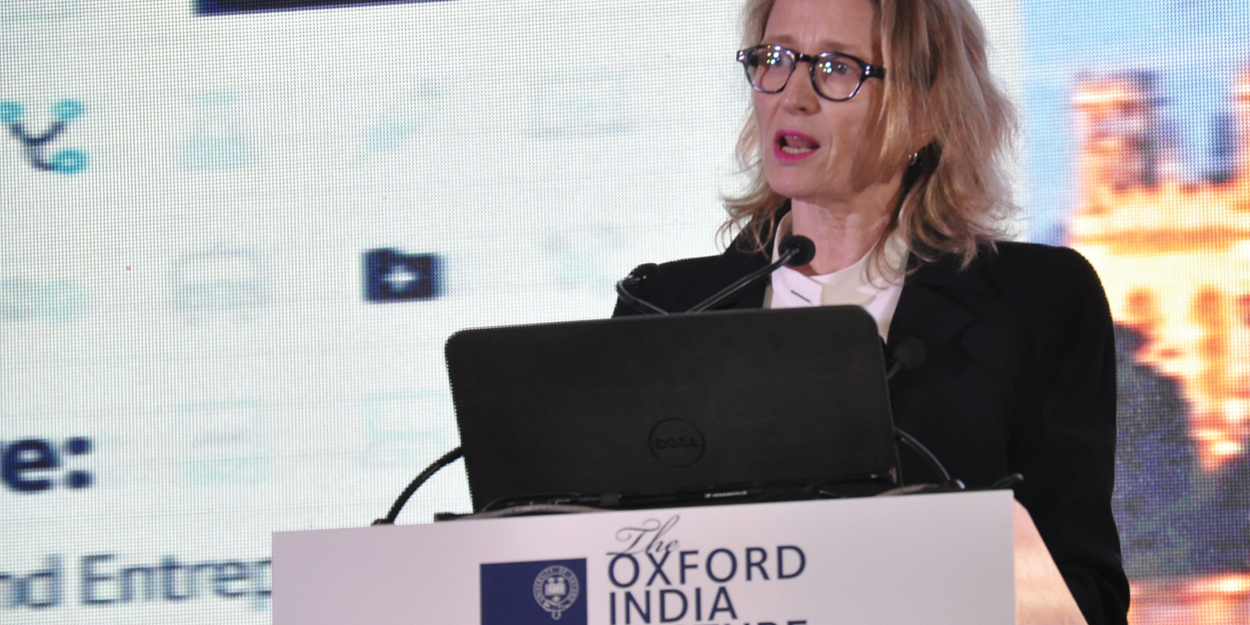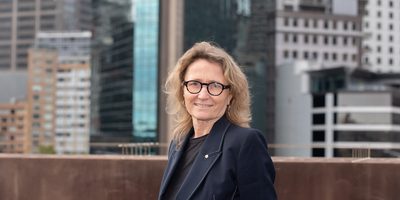
20 years of research leadership
The George Institute has sought to be at the forefront of addressing the global burden of non-communicable diseases and injuries for the last 20 years, says co-founder and Principal Director Professor Robyn Norton AO.
The mission of the Institute is to improve the health of millions of people around the world.This global vision continues to be as relevant today as it was 20 years ago, when two Chinese and one UK research fellow joined Robyn and [fellow co-founder] Professor Stephen MacMahon AO in their move from New Zealand to Australia in 1999 to establish the Institute.
“Our aim from the outset was to undertake research to raise awareness of and address the growing burden of non-communicable diseases in low- and middle-income countries, at a time when people were not really aware of this alarming trend,” Robyn explains.
“This has always been a focus of our work and as a result, we have been privileged to have people join the organisation because they are committed to our mission and want to make the world a better place, especially for those in resource poor settings. Our move to working in China and India was based on the premise that if we can make a change to policy or practice in these countries, with the biggest populations in the world, we have the potential to change many people’s lives.”
In addition to scale of impact, Robyn says equity is a fundamental principle that remains deeply engrained in the Institute’s ethos.This quest for equity, at its simplest, is based on the belief that the most under-served and disadvantaged around the world should have as good access to quality health care as anyone else.
“Even though a significant proportion of our work has relevance for high-income countries, there's no question that people are attracted to working with us because we have that equity focus,” she says.
To this end, Robyn and her colleagues have always insisted that the practical application of research should be a top priority, rather than just the publication of the research itself. Another underlying principle guiding all of the Institute’s work has been that treatment must not only be medically effective, but also cost-effective.
"We don't want to find good treatments if they're going to cost 50 times more than current treatments,” she says. “We've got to find better treatments that cost less. That way, more peoples' lives can be affected, particularly those who cannot afford current options.”
Two decades on, no-one can question the Institute's impact – it has grown from a handful of Sydney-based researchers to a global organisation of more than 700 people across centres in Australia, India, China and the UK, raising nearly $1 billion for medical research.
The secret of the organisation’s success is, as Robyn says, disarmingly simple: "Our view has always been that we want to work with people who are better than us. We know how to identify these kind of exceptional people, and they have been crucial to the growth and impact of the organisation.”
Looking ahead, the Institute's strategy for the next five years is focused on three key areas: finding better treatments for the world’s biggest health problems, transforming primary health care to support better health for more people, and harnessing the power of governments, markets and communities to improve health.
Part of this strategy is the Institute expanding its "juxtaposition of research, advocacy and the private sector," in Robyn's words, with a greater focus on disruptive entrepreneurship and thought leadership for increased impact.
With such a clear strategic focus, Robyn is confident the Institute will continue to build on its achievements and play an even greater role in establishing better health outcomes for all.
“There will always be challenges but it's that can-do attitude we have of 'well, if no one else is going to tackle a big challenge, then we've got to,’” she says. “We've been very good over the years at addressing these kind of challenges because we've got a clear goal to accomplish.”
“We've been a mission-driven organisation for 20 years and now we have a culture where people live and breathe it. Together, we’ll continue to be a voice for addressing the leading health conditions that affect people in every country in the world.”
Celebrating 20 years: Robyn's top moments
- Leading the way: “We have been at the forefront of addressing the burden of non-communicable diseases and injuries for the last 20 years, and we've been consistent in that approach.”
- Building a team: “It’s been an amazing 20-year journey of building an extraordinary group of people who are doing extraordinary things.”
- Taking on the world: “Twenty years ago, Stephen and I were young, enthusiastic, passionate, ambitious people knocking on peoples’ doors. They probably thought ‘Who are these young upstarts from New Zealand? What makes them think they can take on the world?’ Well, we did.”


